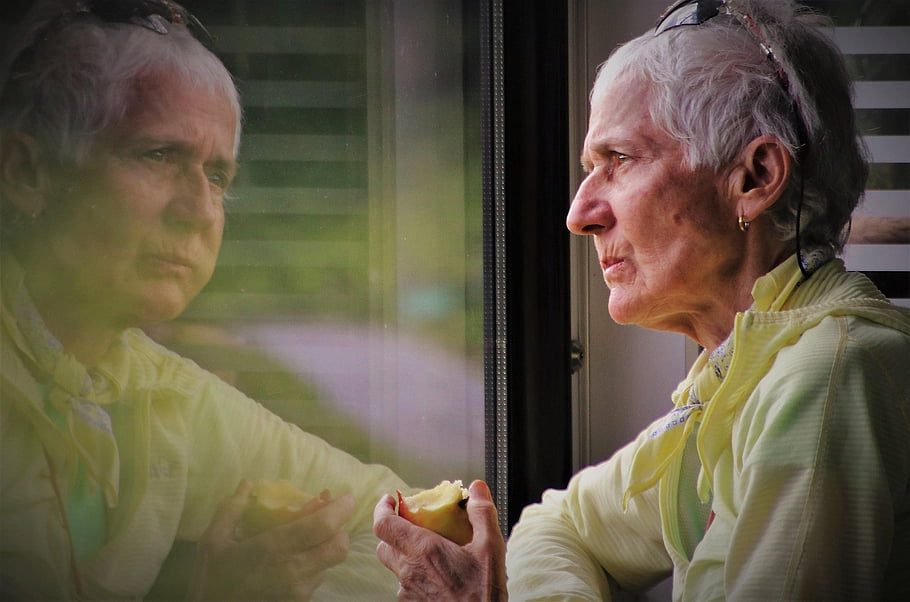Age in Spain is looking for members, volunteers and donations to support its Friendline service, a vital tool to help older English speakers who might be feeling isolation or social exclusion. By Eugene Costello
Age in Spain is looking for support for its Friendline, a vital tool to help older English speakers who might be feeling isolation, social exclusion or just need someone to connect with for a good conversation.
We spoke to Teresa Filipovic, head of communications for Age in Spain. Teresa grew up in New Orleans, spent some years in New Jersey and now lives in El Bosque near Valencia with her Croatian husband and three children.
“Age in Spain has been around for many years,” says Teresa. “It started in response to so many people coming over from the UK in the 1970s and 1980s for a relaxed retirement in the sun. As they aged, they started to need more resources. They were unsure where and how to seek support as they aged and often didn’t access the support they needed.”

The charity’s founders saw the problem, and determined to create a charity for British expats and more generally, English speakers. Judy Arnold-Boakes and her husband Jim started OASIS (Overseas Assistance and Support in Spain) in Mallorca. It became Age Concern Spain after establishing several local Age Concern groups on the Costas. “It’s the leading national charity that helps older English speakers to live their best life in Spain,” says Teresa.
The English-speaking charity
A large proportion of its base will always be UK nationals, says Teresa. “But if you can speak English, you are our customer,” says Teresa.
There are plenty of reasons for social exclusion and isolation, says Teresa, such as reduced mobility. “Perhaps you never drove, your husband did, and he’s passed away. Or you live in a rural setting and now have problems getting around. And there is simply no one you can connect with.”
Age in Spain helps people in a number of ways. There is an in-person support service, where typically a volunteer will physically come to help you. “This is suitable for those with more complex needs,” says Teresa.

Then there is the Infoline service, with a wealth of free-to-access guides and news articles. And when you require personal information there is an enquiry service. Again with a staff of volunteers, where people can email or call with their specific questions.. “It’s an exchange of information, rather than a full investigation that means looking thoroughly into their situation and finances, or even repatriation possibilities” says Teresa.
If you do have more complex needs, you might require a referral to their new Support and Advocacy Service. This service is there for those times when information alone is not enough. The volunteers will work with the customer to identify what help is appropriate and available. They can carry out a financial assessment in order to ascertain what help you need and how best to target the assistance. Or you might need mobility assistance such as a ramp or railings, or help to apply for a grant for such things.
Friendline is a lifeline
“We have one lady who wishes to remain anonymous, so we’ll call her lady L. She retired here with her husband. They had originally moved to France but would come down to Spain in a campervan to winter. “They decided that Spain would be cheaper and better weather. So they moved here in 2018 after some years of travelling down here.”
Sadly, she does not particularly like living here, and finds the bureaucracy a nightmarish maze to negotiate. Originally from Wales, she would move back in a heartbeat but simply cannot afford to. “So she is already in a depressive state and doesn’t want to be here,” says Teresa.
The pandemic was especially tough for L. From Friday 13 March until 21 May, L didn’t leave the house. Her husband was the driver but they lived in fear of fines. They live between two municipalities, on the border of Murcia and Alicante provinces. Some people they knew received fines of 600€ for being on what the police deemed “non-essential journeys”.
She became aware of Age in Spain from Facebook and got in touch. With anxiety and social issues, she began to use Age in Spain’s Friendline. This brings a weekly phone call from a designated volunteer.
“Friendline is a lifeline for me. I had no friends. I was really lonely. Now I look forward to my call each week and I feel that life is worth carrying on with again.”
It is something that she looks forward to each week, she says. The structure of having a specific day and time for her call gives her some security, something to look forward to. “Otherwise my diary is empty,” she says, wistfully.
Forming genuine friendships
Another user of Friendline is Marilyn, a very active member of her community. She lives in a rural area and first came to Spain as an English teacher with some 50 students. She now runs a pet rescue and adoption service. She lives in an area with lots of British expats, but nonetheless felt isolated. She had trouble forming friendships through local associations. She is a regular user of Friendline. She says, “It gives you a lift, a boost and something to look forward to.”
And lastly, Rob, who moved to Spain in 2014. He is also atypical in that he speaks Spanish very well, and is adamant that he would never move back to the UK. He is a devotee of Friendline. “Although I speak good Spanish, I find it hard to form close friendships in my village. The Spanish tend to have their own circles of family and old friends. I have been through some pretty rough experiences in the past few years. So I really value having someone to chat to every week. It is someone that I feel very comfortable chatting with.”
Volunteers come from all over Spain, mostly British expats.
It’s an essential service, and Age in Spain currently has a fundraising campaign until mid-July. There are costs associated with running the service, including background and police checks, as well as phone and training costs. The charity is almost exclusively made of volunteers. A volunteer workforce of around 50 directly helps nearly 4,000 people each year, supported by just two paid staff.
If people can contribute with either their time or donation, Age in Spain would love to hear from you. This could be you in 20 years’ time, after all.
• Find out more at https://ageinspain.org/friendline/